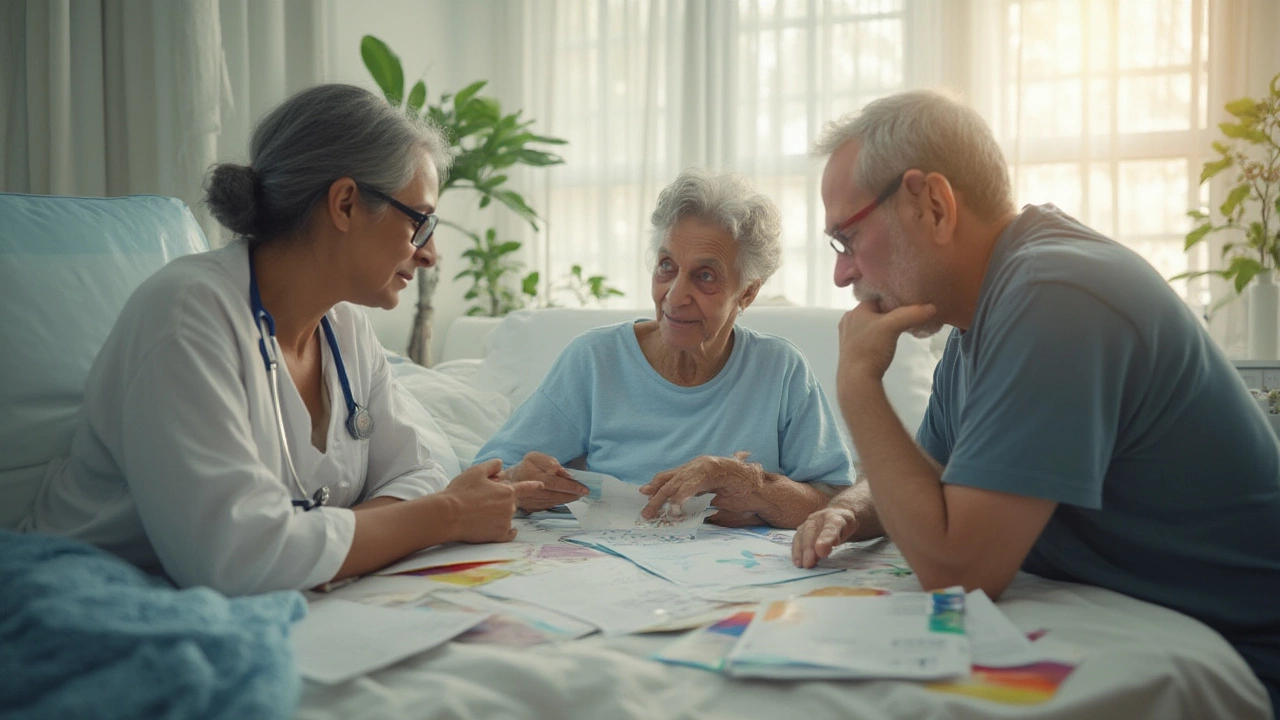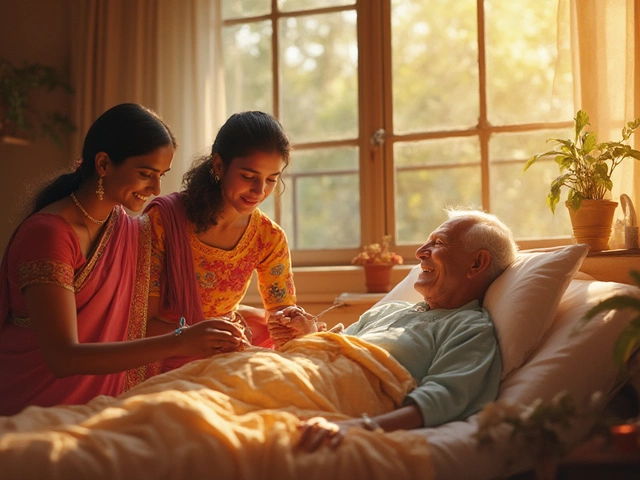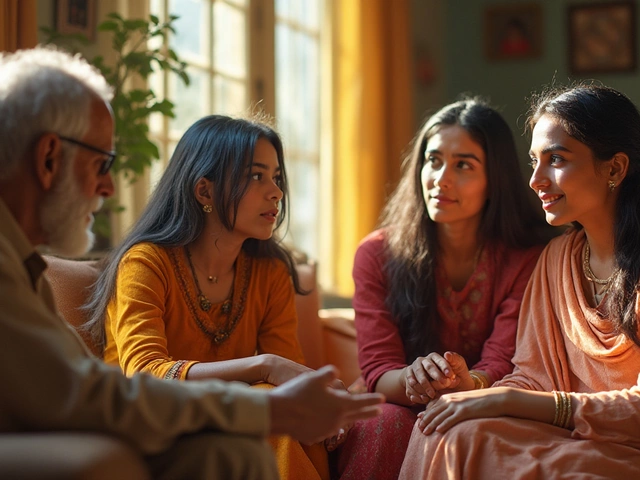There's a phrase the doctors use that hits you in the gut—stage 4 cancer. It's the label no one wants for themselves or a loved one. Instantly, questions start spinning: Is it too late? Does chemotherapy have any use now? Should you put your body through all that if the odds are so tough? I remember my friend, whose dad was told about stage 4 lung cancer over chai in the family living room. The shock, the endless Google searches for 'miracle cures,' and the urgent conversations about what to do next. Let’s cut through the drama and myths and face the facts, because you deserve clear answers, not empty hope or doom.
Understanding Stage 4 Cancer and Chemotherapy's Role
Stage 4 means the cancer has spread—‘metastasised’ in medical jargon. Most people assume this is a death sentence, but reality is a bit more layered. Sure, it isn’t what anyone wants to hear, but it’s not ‘game over’ instantly. Many types of cancer—even at stage 4—respond to treatment. Chemotherapy, which uses drugs to attack fast-dividing cells, is still the backbone of advanced cancer care around the world. According to the Indian Council of Medical Research, over 1.4 million new cancer cases emerge each year, and 60-80% of Indian patients are diagnosed at an advanced stage (often stage 3 or 4) due to late detection.
What most families don’t realize is that chemotherapy for stage 4 cancer isn’t usually about a cure. It’s about control: slowing down the cancer, shrinking tumours, easing pain, and prolonging life. Doctors call this 'palliative' rather than 'curative.' For example, chemotherapy can shrink lung tumours, making it easier to breathe. It can reduce pain from a bone cancer. Even aggressive cancers like pancreatic or ovarian may respond for a while, letting patients keep working, travel, or just enjoy time with their children. Not every story is dramatic, but there are cases where folks have lived many years after a stage 4 diagnosis thanks to chemo and newer therapies.
There’s a flip side. Chemo isn’t easy. Fatigue, nausea, hair loss—these aren’t just words on a medical pamphlet. I’ve seen friends feel wiped out for days, struggle to keep food down, and lose weight fast. Kids get scared seeing a parent always tired. There’s also the cost. One typical round of chemo in a private Delhi hospital can range from ₹30,000 to over ₹1 lakh, depending on the drug and the hospital, not counting tests, supportive meds, and other expenses. Everyone needs a frank talk with their oncologist about what chemo can realistically achieve and what side effects are likely. Each cancer type, and even each patient, is unique. For some, a slower-growing stage 4 cancer means chemo helps for months or even several years. For others, especially if there are other health issues, chemo might do more harm than good.
Some families explore second opinions or talk to oncologists in big centres like AIIMS, Tata Memorial, or Apollo. India has seen a steady adoption of 'multi-disciplinary tumour boards'—teams of doctors who weigh all treatment options together. They can advise if chemo, targeted therapy, or no treatment is better in each specific situation. There are even genetic tests now, like FoundationOne or Oncofocus, that help match advanced cancers to specific drugs—it’s all about precision and personalizing the plan in 2025. Some health insurers cover at least a part of treatment, so it's always worth checking your policy details.
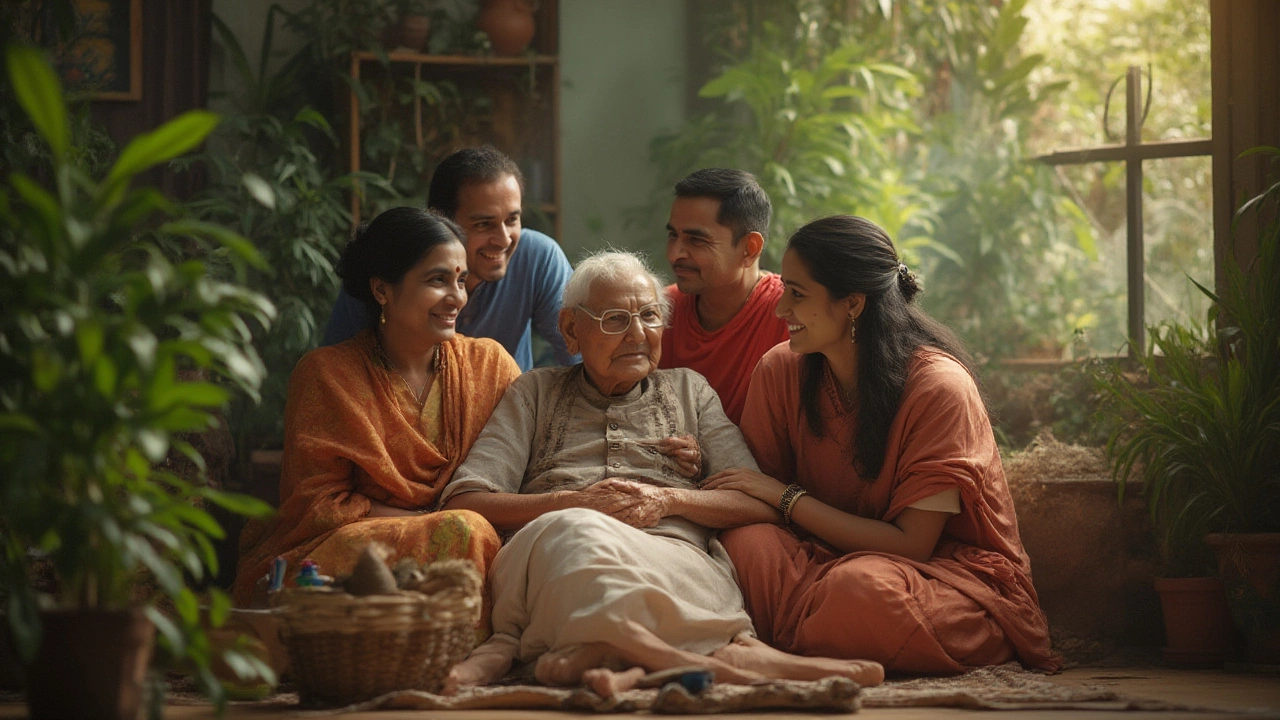
Looking at Survival Rates, New Therapies, and Realistic Outcomes
Let’s get into the data. Numbers can be cold, but they help us understand what to expect. Take colorectal cancer as an example. The five-year survival rate with stage 4 disease is about 14% in the US according to the American Cancer Society (2023 data), but it’s a bit lower in India, because diagnosis happens later and nutrition is variable. For stage 4 breast cancer, survival at five years can touch 25%, and for prostate cancer, it’s over 30%. For most other solid tumours, the numbers drop—pancreatic or lung cancer, after metastasis, are especially hard to treat. Yet, remember: these are averages. Some people respond far better than the stats suggest because tumours behave differently in each person.
And here’s the twist—survival isn’t the only goal. Quality of life matters just as much. Chemotherapy might not buy you decades, but even a few good months—free from pain or seizures, able to attend a son’s birthday, or complete an important family ritual—can mean everything in some families. I know a neighbour in Delhi who opted for three rounds of chemotherapy after being told he had stage 4 stomach cancer. His oncologist warned the odds, but those six months let him see his Son get married, and he was clear-eyed about the choice he was making.
Now, medicine is changing fast, even in India. Chemotherapy isn’t the only card anymore. Targeted therapies, like tyrosine kinase inhibitors (TKIs), focus on specific genetic changes in cancer cells and often have fewer side effects. Immunotherapy drugs—Pembrolizumab, Nivolumab, and others—help your immune system fight back, and some patients show dramatic long-lasting responses. Tata Memorial Hospital, Mumbai, recently started trials combining standard chemo with immunotherapy in lung and bladder cancers, hoping for better results in Indian genetic backgrounds. Costs can be high—immunotherapy drugs start at ₹1.5 to ₹2 lakhs per dose—but some patient-assistance programmes (like those run by major pharmaceutical companies) reduce the burden by 20-100% for families who qualify.
| Cancer Type | Stage 4 Survival Rate (5Y, India/Global) | Chemo Response Rate |
|---|---|---|
| Breast | 23%/28% | ~50% |
| Colorectal | 12%/14% | ~40% |
| Lung (NSCLC) | 4%/8% | ~30% |
| Prostate | 29%/32% | ~70% |
| Ovarian | ~20% | ~70% |
| Pancreatic | 1%/3% | ~20% |
*Notes: Survival rates are 5-year relative survival. Response rate means % of patients with tumour shrinkage/reduction. Data is compiled from ICMR, TMH, and recent international sources.
So when the question comes, “Is stage 4 too late for chemo?”—the answer isn’t a simple yes or no. It’s about your type of cancer, what you want (longer life, less pain, or just extra time with family), your body’s overall shape, and sometimes just sheer luck in how your cancer reacts. Some people walk into cancer clinics, get a few cycles of chemo, and see real improvements—even go back to work. Some try, but the toll is too much. Others mix traditional and modern medicine—Ayurveda for symptom support, alongside chemo or targeted drugs, not as replacement but as complementary.
Family meetings, open talks about risks and hopes, and keeping realistic expectations—these matter as much as the chemo drugs do. Never be afraid to ask questions, demand statistics relevant to your own case, or seek another doctor’s opinion if answers feel vague. And always plan for the practical stuff—from transportation for hospital visits to arranging someone to care for kids like Vihaan and Arya when the exhaustion sets in. It’s not easy, but it can be managed, step by step, with the right team.
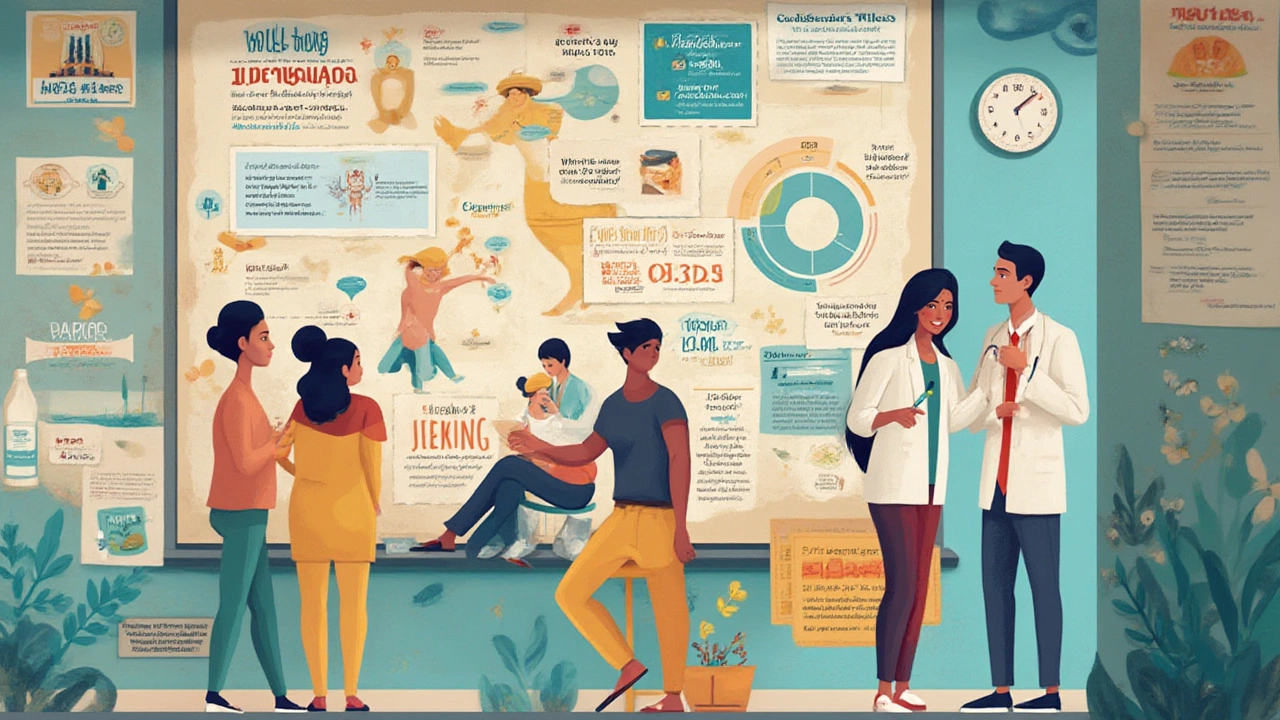
Practical Tips: What to Ask, Expect, and Prepare for With Stage 4 Chemo
If you or someone you love is now facing this decision, the sheer overload of advice can be dizzying. Let’s boil it down. First, make a list of questions to take into every consult—ideally written down because stress makes it easy to forget important points.
- What’s the real goal of this chemotherapy—cure, control, symptom relief?
- How will we measure if it’s working? (Imaging scans, tumour markers, symptoms...)
- What are the side effects—short term and long term? How are these managed?
- Are there newer drugs, genetic tests, or clinical trials worth exploring in our specific cancer?
- Is there a clear plan for pain control, nausea, infection risks, and hospital admissions?
- How often will I have to be at the hospital? Can some chemo be given at home?
- What costs are involved, and will insurance cover them? Is there assistance if money gets tight?
- Who can I contact 24/7 in case of emergencies or severe symptoms?
- What other support is available—nutrition help, counselling for anxiety or depression, home nursing if needed?
Packing a 'chemo bag' helps: soft clothes, a favourite shawl, music or audiobooks, snacks, and water (chemo clinics can be surprisingly cold in New Delhi hospitals!). Arrange for someone to drop-off and pick-up if possible, or check if the hospital offers transport. Many people find mouth sores or gut problems, so gentle foods—rice, dal, poha—work best. Hydrate like crazy, unless the doctor says otherwise.
Even kids sense when things are stressful. I tell Vihaan and Arya the truth in simple terms, so they feel part of the team, not shut out. When you can, create tiny rituals: movie nights at home during chemo recovery days, favourite family foods, or phone calls to relatives. It reminds everyone that cancer doesn’t wipe out joy; it just rearranges how you find it.
Finally, stay tuned to your own body. Some warning signs mean you need help right away—uncontrolled vomiting, fever above 100°F (since chemo weakens immunity), breathing trouble, or chest pain. Hospitals in India, especially in Delhi, Mumbai, and Bengaluru, offer 24/7 emergency services for cancer patients, but don’t hesitate to use them. They see this every day and are well-equipped to help.
People sometimes whisper about 'giving up' if chemo is stopped or skipped. Don’t let anyone guilt trip you. Choosing to pause chemo, or switch to only supportive care, isn’t failure—it’s a decision for comfort and dignity. Indian palliative care teams (at places like CanSupport or Pallium India) do incredible work helping families through advanced illness when chemo or other treatments lose their edge. Sometimes an honest talk about these options opens up more peace and less worry, for both patient and family.
Life at stage 4 is complicated—more than any online list or stats can catch. But one thing I know: there’s value in every good day, chemo or not. And in 2025, having open conversations, arming yourself with real info, and picking a team that treats you like a person—not a statistic—is how you fight the battle on your own terms. If you’re staring down the chemo question, you’re not alone, and the path isn’t as narrow as you might think.
